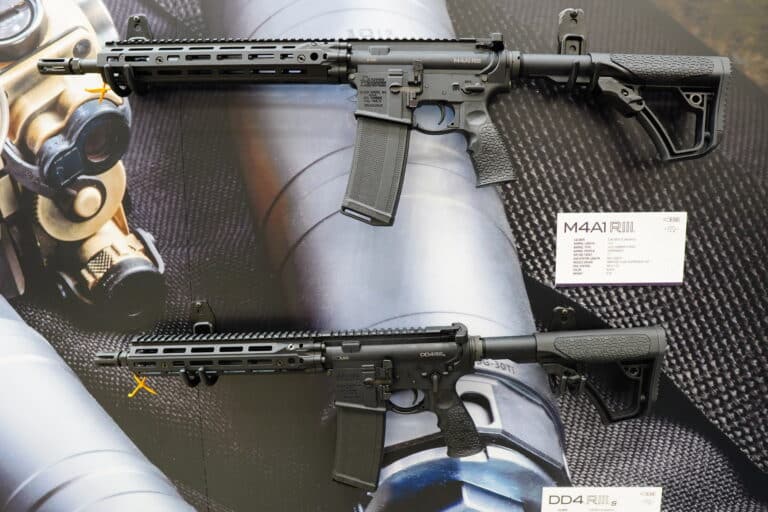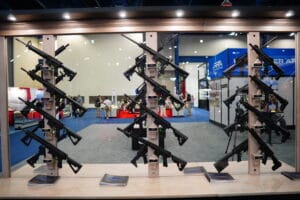Prohibition of so-called assault weapons and their accessories is consistent with the nation’s tradition of regulating “exceptionally dangerous arms,” a federal judge has ruled.
U.S. District Judge Robert Bryan, a Ronald Reagan appointee, denied a motion for preliminary injunction filed by gun-rights advocates against Washington state’s assault weapon ban on Tuesday. Judge Bryan said AR-15s and similar firearms have caused “unprecedented social concerns” and are used “disproportionately in mass shootings, police killings, and gang activity.” Thus, they can be regulated by states in the same way previous dangerous weapons were regulated in the 19th and 20th centuries.
“Semiautomatic assault weapons represent a significant technological change – they allow a shooter to fire as fast as they can pull the trigger, unlike previous guns,” Judge Bryan wrote in his order. “Regulation of assault weapons and their dangerous accessories, as HB 1240 regulates, is arguably consistent with our Nation’s history and tradition of exceptionally dangerous arms regulation.”
The ruling is a major setback for gun-rights advocates who are currently fighting “assault weapons” bans in courts across the country.
Judge Bryan’s analysis will likely prove controversial among gun-rights supporters but could be celebrated by gun-control advocates for its expansive view of what constitutes historical analogues for modern gun bans. His reasoning is nearly identical to that used by a federal judge in Delaware who denied an injunction request against the state’s semi-auto rifle ban, and by a federal judge in Oregon in favor of the state’s voter-initiated ban on “large-capacity” magazines, suggesting that it could become the dominant legal argument in favor of modern hardware bans.
Bryan cited historical regulations on trap guns, bowie knives, clubs, slungshots, and multi-shot revolvers as historical examples of “weapons that, after being invented, their use proliferated, the weapons began to be used for interpersonal violence, and then States regulated the weapons.”
He noted that even though the historical laws almost uniformly did not ban possession of the weapons in question, only public carry, the laws were nevertheless relevantly similar because “they impose ‘comparable burdens’ on the right of armed self-defense.”
He also cited the regulation of automatic weapons under the 1934 National Firearms Act and Congress’s 1994 federal assault weapon ban as evidence of the government’s authority to ban modern firearms.
“Even these late events are part of assault weapon regulation in the Nation’s history,” Judge Bryan wrote.
Washington Attorney General Bob Ferguson (D.), the chief proponent of the state’s ban, celebrated the decision.
“We remain undefeated against the gun lobby in court,” Ferguson said in a press release. “This common-sense gun reform will save lives by restricting access to the preferred weapon of mass shooters.”
The Firearms Policy Coalition (FPC), one of the gun rights organizations challenging the ban, said the group was dissappointed by the outcome of the injunction request.
“We’re disappointed with the Court’s ruling but remain undeterred in our fight for and defense of the People’s natural right to self-defense,” Cody Wisniewski, the group’s Senior Attorney for Constitutional Litigation, told The Reload.
The group did not comment on whether it planned to appeal the decision.
UPDATE 5:04 PM Eastern 6-6-2023: This piece has been updated with comment from the Firearms Policy Coalition.






